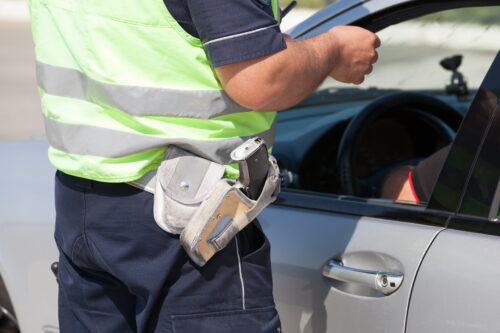
Drivers in South Carolina often wonder whether they have the right to refuse a field sobriety test when they’re pulled over on suspicion of driving while under the influence (DUI). Drivers must understand their rights to ensure they aren’t violated. Please continue reading to learn whether field sobriety tests are mandatory and how a determined Chesterfield County DUI Lawyer can help you today.
What is a field sobriety test?
When a police officer has probable cause to perform a traffic stop to help them determine if a person has been driving while intoxicated, they may request a field sobriety test. The officer will ask you to exit the vehicle and perform tasks to measure your physical and mental capacity to operate a vehicle. Typically, these tests are intended to examine your coordination, reflexes, balance, and overall cognitive functioning.
In South Carolina, the standardized field sobriety tests include the horizontal gaze nystagmus test (HGN), walk and turn, and one-legged stand. The officer may also ask you to perform other non-standard tests, like placing your finger on your nose, reciting the alphabet backward, and different types of testing to determine whether or not you’re impaired. If you fail this test, it does not mean you will automatically be convicted of DUI. However, it is a good indication for a police officer to investigate further.
Can I refuse to take a field sobriety test in South Carolina?
If you’re pulled over on suspicion of DUI, it’s imperative to understand your rights. In South Carolina, roadside field sobriety tests are not mandatory, meaning they are voluntary. While the police often make it seem like these assessments are mandatory, you’re not legally required to perform them. Therefore, you can refuse to perform a field sobriety test.
Nevertheless, it’s vital to understand that refusing to take a field sobriety test differs from refusing to submit to a chemical test. South Carolina enforces strict “implied consent laws.” Under this law, anyone who accepts driving privileges, meaning they receive a driver’s license, automatically consents to submit to a chemical test, such as a breathalyzer, to measure their blood alcohol concentration (BAC) to determine if they’re intoxicated. Violations of implied consent laws will result in severe consequences, including automatically suspending your driver’s license.
It’s crucial to remember that while you’re not legally required to perform field sobriety tests, the refusal can be used against you in court. The prosecution can argue that it shows your “consciousness of guilt.” Essentially, this means that they can claim that you refused to perform a field sobriety test because you knew that you would fail the tests.
If you’re facing criminal charges for DUI, you should enlist the legal assistance of an adept lawyer from the Cockrell Law Firm, P.C., who can help defend your rights. Allow our firm to represent your interest to maximize your chances of the best possible outcome for your case.